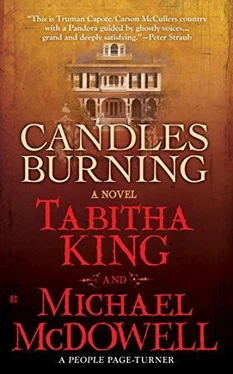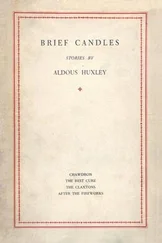Except for his twice-annual vacations, he was on call twenty-four hours a day every day of the year. He paid a retired doctor from Montgomery to come out and tend his practice during his vacations, not because he cared that much about his patients but he did not want to encourage any poaching of his practice by hungrier physicians in reach of Tallassee.
Of course, he had to deal with Mamadee and the other grandees— grandees was one of Daddy’s words for them, confusing me (when I was just a knee-baby) into a belief that all the superior folk of Tallassee were somehow related to me through Mamadee. Daddy also called them pooh-bahs. The grandees and pooh-bahs expected immediate attention, immediate relief, and then argued about the bill.
Dr. Evarts also treated the multitudinous diseases of the abjectly poor whites of the Alabama countryside when they could find a dollar or two. Pale and malformed and destitute, these unfortunates led lives hidden to all but the social worker, the sheriff, and the physician. They were deviled with diseases that Dr. Evarts’s professors had declared eradicated. The dollar that he demanded from them for an office visit barely covered his costs, and for that reason alone, he slept the sleep of the just and righteous. His conscience was not so advanced for Dr. Evarts to treat coloreds. The nearest medical care for them was in Tuskegee, and how they got there or found the money to pay for their care, was of no interest to him. I learned later that when a colored male made the mistake of entering his office, Mrs. Evarts would determine if the man’s complaint was likely to be syphilis, and if so, Dr. Evarts would direct the man to Tuskegee, to participate in the eventually notorious study in which syphilis was not treated. He was not the first or the only white physician to follow this practice; all the white physicians in the county had agreed to do it, as part of the study. I have read that colored physicians did also.
He was a good-looking man with a fine head of silvering hair—all the ladies said so. He must have been in his mid-forties at the time I knew him. Before his marriage, he had admired Mama, or so Mamadee claimed. Mama always smiled secretively when the subject came up. It strikes me as doubtful, given Mama would have been all of ten or eleven when Dr. Evarts arrived in Tallassee. Much of what I know about him, I learned as a child, overhearing Mama and Mamadee and their friends discussing him. The rest I discovered years later, in researching Daddy’s murder.
Mamadee had ordered Ford and me to our rooms. Ford lurked behind the balustrade of the grand staircase in Mamadee’s foyer, peeking and listening. I went out a side door and up the nearest live oak with a view into the salon—hand over hand and in my socks. I could see Mama clearly. She paused to light a cigarette. Then she went on breaking the remaining bits of glass out of their muntings in the French doors. With the cigarette between her lips, she wielded a silver candlestick. It broke the muntings with a sound like a wishbone snapping.
Krikkrik
Around the corner of the house, Dr. Evarts’s two-year-old black Lincoln rolled on the gravel of the drive. Mamadee personally opened the door to him before he could ring the bell.
Mamadee rattled the key in the lock and flung open the door.
Mama had already slipped the candlestick behind the nearest sofa cushion. She flicked her cigarette out into the debris beyond the threshold of the broken doors.
Mamadee stopped short in feigned shock at the destruction.
Setting down his bag by the sofa, Dr. Evarts spoke in a soothing voice, “Now, Roberta Ann.”
Disheveled, barefoot and bare-legged, she took a step toward Dr. Evarts and swooned into his arms.
“Oh, Lewis.” She sobbed. And then, raising her face to the ceiling, she went on, “Sweet Jesus, thank you, thank you, for sending a friend in my time of need!”
Mama knew, of course, that Dr. Evarts had been called. She went all limp and weak in his arms and he carried her to the sofa.
“Roberta Ann,” Dr. Evarts said gravely, “your mama is your best friend, you know. You have had a terrible time, haven’t you? Forgive me, my dear, I am remiss. Please accept my deepest condolences.”
Mamadee passed Mama her handkerchief and Mama wiped her eyes, allowing Dr. Evarts to slip a syringe from his bag.
“I’ll bet you haven’t slept since this horrible tragedy started, have you?” he said as he pumped the syringe, squirting a little fluid out the needle.
Seeing it now, Mama recoiled. “I do not need whatever that is, Lewis. I just need for that damned lawyer to answer my questions.”
With the syringe in one hand, Dr. Evarts swabbed at her near arm with a little pad. “This will get you to sleep, my dear.” He paused to look at her bare legs appreciatively.
She yanked her arm away. “Who the hell do you think you are, Lewis Evarts? Mama wants you to knock me out and haul me off to the mental hospital, doesn’t she? She wants everybody to think I am crazy. Well, I am not. I am as sane as you are, Lewis.”
Dr. Evarts sighed and put down the syringe. “Roberta Ann, nobody is going to put you in the mental hospital. Now, you let me help you get to sleep. You’ll feel a lot better in the morning.”
“No! You can take that needle and stick it in Mama if you want. Then I will go over to Winston Weems’s house and he will talk to me or I will know the reason why.”
Dr. Evarts glanced quickly at Mamadee, who stood with her arms crossed, glaring at Mama.
“Win’s had a gallbladder attack,” Dr. Evarts told Mama. “I was there not an hour ago. He’s no spring chick, Roberta Ann. It’s all been a terrible shock to him too.”
Mama was amazed, at least outwardly.
Out on my tree branch, I heard the lie in the doctor’s voice. Mama could not, of course, though she assumed it. She never could hear the lie in her own voice. However could she hear it in anyone else’s? How could she hear the truth and know it to be so? I have wondered if she did not spend her whole life assuming everyone was lying about everything all the time, all because she had a tin ear for truth.
“I knew it,” Mamadee said. “Roberta Ann Carroll, you’ve thrown a big tantrum over an old man being too sick to come running at your beck and call. What would your daddy think of you, carrying on like you did not know any better?”
Dr. Evarts picked up the syringe again. He reached for Mama’s arm.
“Lewis,” Mama said. “Put that thing back in your bag and get me a glass of bourbon. That and a cigarette will put me right and I will sleep like a baby.”
Dr. Evarts nodded and put the syringe away.
“Lewis,” Mamadee protested.
“Mrs. Carroll,” the doctor said, rising to his feet, “I think a little bourbon would do us all good.”
Mamadee shot him a poisonous glare. One of the things—such as having the unplayed piano tuned—that Mamadee continued to do after Captain Senior’s death, because she had always done it, was to keep the house stocked with the finest bourbons. Everyone knew it. Her circle relished the challenge of forcing her to part with a glass. Ford raided it whenever we visited, just to prove that he could.
Mamadee went to the salon breakfront, where behind glass doors dozens of crystal glasses stood holding their few ounces of empty air. In daytime, when the draperies were drawn open, the glasses broke the light into rainbows, just as prisms did in the antique shops Mama and I used to visit. Below the glass doors were mahogany doors, and behind those were cut-glass decanters, very like the ones in Penthouse B of the Hotel Pontchartrain in New Orleans.
On the side of the tree that was hidden from the house, Ford came scrambling up to look into the salon with me.
Читать дальше












